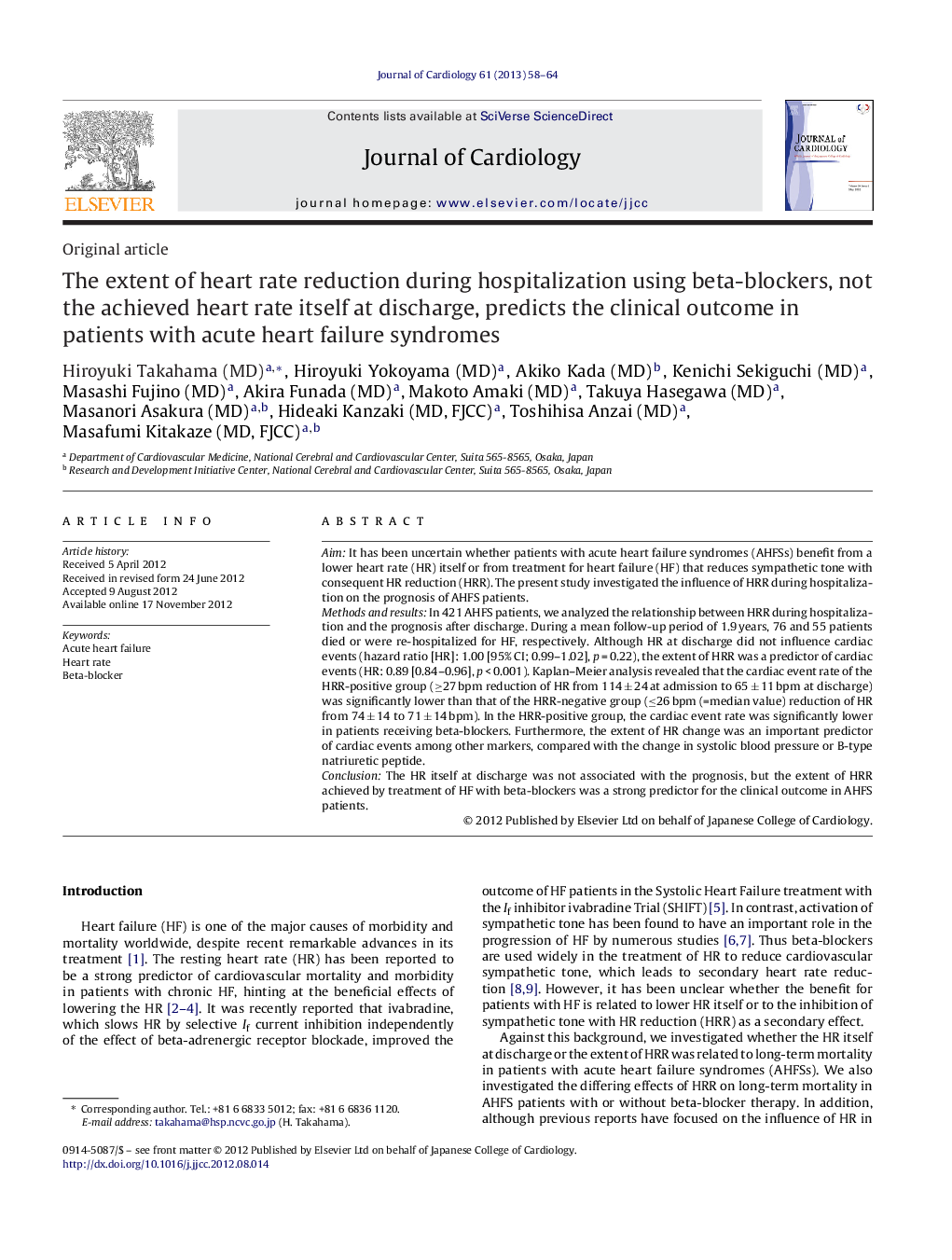| Article ID | Journal | Published Year | Pages | File Type |
|---|---|---|---|---|
| 2963220 | Journal of Cardiology | 2013 | 7 Pages |
AimIt has been uncertain whether patients with acute heart failure syndromes (AHFSs) benefit from a lower heart rate (HR) itself or from treatment for heart failure (HF) that reduces sympathetic tone with consequent HR reduction (HRR). The present study investigated the influence of HRR during hospitalization on the prognosis of AHFS patients.Methods and resultsIn 421 AHFS patients, we analyzed the relationship between HRR during hospitalization and the prognosis after discharge. During a mean follow-up period of 1.9 years, 76 and 55 patients died or were re-hospitalized for HF, respectively. Although HR at discharge did not influence cardiac events (hazard ratio [HR]: 1.00 [95% CI; 0.99–1.02], p = 0.22), the extent of HRR was a predictor of cardiac events (HR: 0.89 [0.84–0.96], p < 0.001). Kaplan–Meier analysis revealed that the cardiac event rate of the HRR-positive group (≥27 bpm reduction of HR from 114 ± 24 at admission to 65 ± 11 bpm at discharge) was significantly lower than that of the HRR-negative group (≤26 bpm (=median value) reduction of HR from 74 ± 14 to 71 ± 14 bpm). In the HRR-positive group, the cardiac event rate was significantly lower in patients receiving beta-blockers. Furthermore, the extent of HR change was an important predictor of cardiac events among other markers, compared with the change in systolic blood pressure or B-type natriuretic peptide.ConclusionThe HR itself at discharge was not associated with the prognosis, but the extent of HRR achieved by treatment of HF with beta-blockers was a strong predictor for the clinical outcome in AHFS patients.
